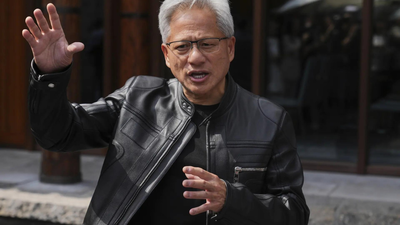US tech layoffs spark $100,000 H-1B visa fee demand: Here’s why workers and politicians are finally listening

A surge in layoffs within the US technology sector has reignited demands for a $100,000 fee on each H-1B visa issued to foreign skilled workers. The call for this substantial increase comes amid growing concerns that the current H-1B visa system is displacing American tech workers, especially recent graduates and those with experience in coding and support roles.Kevin Lynn, who leads the Institute for Sound Public Policy, a group advocating for stricter controls on foreign labour, noted that the issue has gained traction following the spike in tech job losses. “Our voices are being heard,” Lynn said in an interview, adding that the topic is now resonating with legislators and the public alike, as reported by the NYT News Service.Tech layoffs and the H-1B visa connectionThe H-1B visa programme was originally designed to help US employers fill positions requiring specialised skills when there is a shortage of qualified American workers. However, federal data shows that nearly two-thirds of approved H-1B applications last year were for roles in computer fields, where the median salary hovers just above $100,000.Stephen Schutt, a software developer who has collaborated with Lynn, described the situation as an abuse of the system. “We see how everything is abused, the risk to the overall system – how if this continues, there’s a real chance that people who are born in America won’t be able to get jobs,” he told the NYT News Service.According to census figures, roughly 1 in 5 of the 2.3 million software developers in the US are foreign-born, a substantial proportion considering their impact on the labour market. While the presence of foreign workers was not previously seen as a threat during the tech boom, recent years have witnessed tens of thousands of layoffs, pushing the issue into the spotlight.The changing job market fuels political momentumBefore the recent surge in tech layoffs, Lynn and his advocacy group struggled to gain widespread attention. Their campaigns, including ads on San Francisco public transport and efforts to stop outsourcing of technology jobs at the Tennessee Valley Authority, received little public traction. The topic remained largely ignored even during President Trump’s initial term.That changed after the election when activists such as Laura Loomer, a right-wing figure supporting President Trump’s nationalist agenda, helped elevate the issue. Lynn credits the softened job market as a key factor in the growing political interest. “In August, when legislators went back to their districts during recess, I have been told by several people that their constituents were saying, ‘Why can’t my kid get a job? And why are there so many Indians?’” Lynn said, according to the NYT News Service.Employers’ use of H-1B visas under scrutinyExperts argue that many employers use the H-1B programme not for specialised skills but for basic coding and tech support tasks. Kirk Doran, an economist at the University of Notre Dame, explained that most H-1B workers perform routine roles rather than advanced technical work, a view shared by other economists.The system’s flaws extend to the permanent labour certification (PERM) process, which employers use to sponsor foreign workers for permanent residency. Critics say companies often list job openings they do not intend to fill with American workers. Several major firms, including Facebook and Apple, have faced federal investigations and lawsuits over such practices.First-hand accounts from displaced workersSeveral US tech workers who have faced layoffs describe being replaced or undercut by H-1B visa holders. One anonymous user interface designer said his department was eliminated in 2024 while his employer sought a dozen H-1B visas for similar roles. Another machine learning engineer reported multiple layoffs following the hiring of contractors on H-1B visas to take over routine tasks, as reported by the NYT News Service.The debate moves forward amid changing economic realitiesDespite economists agreeing that the H-1B programme can benefit the broader US economy, the rising unemployment rate in tech and increased job competition have brought the issue to the forefront. President Trump recently announced a $100,000 fee on each H-1B visa for for-profit companies, aiming to discourage reliance on foreign workers for routine roles.The ongoing debate touches on complex themes of globalisation, outsourcing, and immigration policy. As Lynn put it, “Globalisation is the trunk of the tree, and offshoring, outsourcing, H-1Bs are the branches,” according to the NYT News Service.





